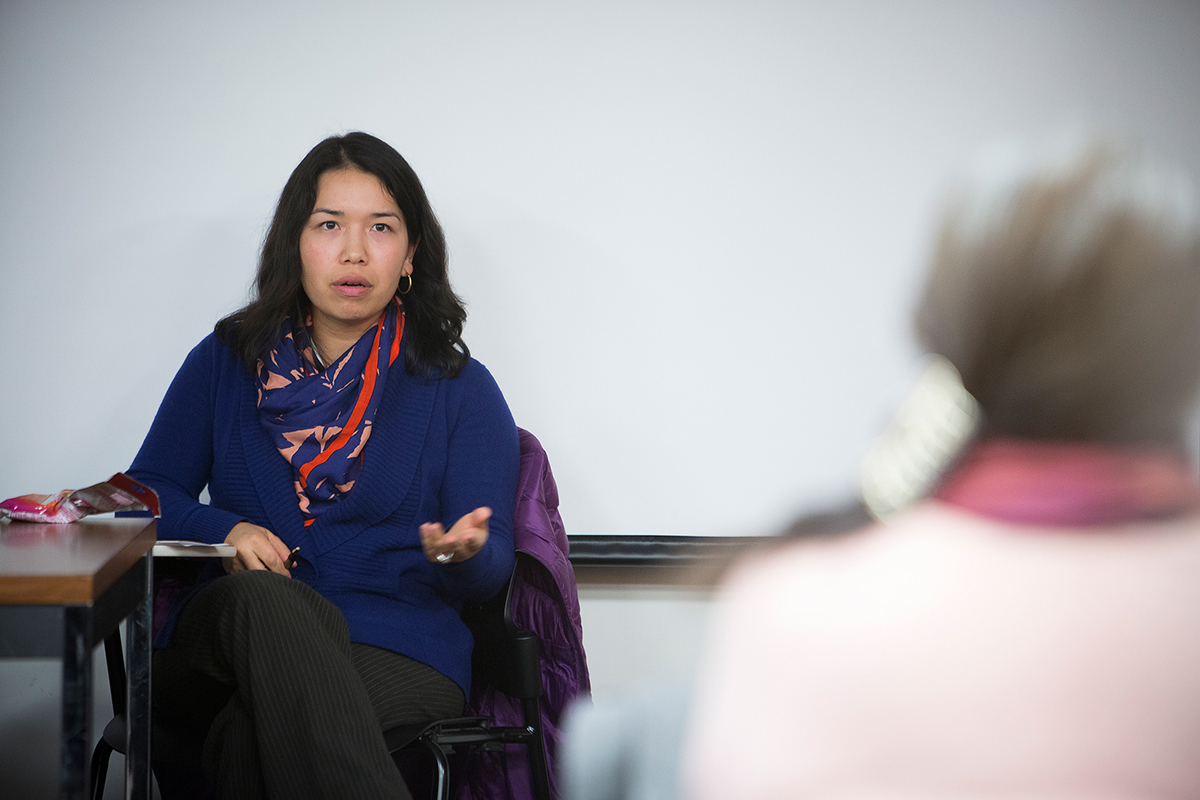Roundtable weighs Chinese political developments
By Giorgi Tsintsadze

Chinese politics has remained opaque for political analysts and external observers for decades. Nevertheless, journalists and scholars across the world have been watching modern China to discern its internal logic and identify recurring patterns.
For many such observers, the People’s Republic of China seems to be entering a period of increased governmental crackdown on civil society. Panelists and members of the community gathered in Morrill Hall Feb. 4 to judge the reality of apparently shrinking civil liberties and to pinpoint its causes.
The event, “The Great Crackdown: A Roundtable on Censorship and Protest in China Today,” was organized professors Magnus Fiskesjö and Eli Friedman and sponsored by the Mario Einaudi Center for International Studies’ East Asia Program.
Fiskesjö, associate professor of anthropology, began by telling the story of “vanished booksellers” in China and Hong Kong. A number of employees of major publishing companies and bookstores disappeared last fall only to re-emerge months later in staged televised confessions. Fiskesjo drew disturbing historical parallels between these recent Chinese cases and notorious show trials of the Soviet Union.
Philip Cunningham, a scholar of communication who has lectured and worked at various media organizations in China and Japan since the 1980s, spoke about the cultural values of the modern Chinese society and contextualized the current situation within the larger historical narrative of the region. Cunningham warned that with its extensive state apparatus using fear and other mechanisms, China might be trying to “win a hundred battles without a shot being fired.”
Eli Friedman, assistant professor of international and comparative labor at the ILR School, outlined the political and legislative landscape that labor organizations have to operate in modern-day China. In the absence of powerful independent trade unions and sources of funding, “labor NGOs” try to mobilize limited resources to promote workers’ rights. In the face of constant threats and often ungrounded charges of “subversive activities sponsored by foreign funds,” these organizations find it increasingly difficult to promote progressive change. Commenting on recent developments, Friedman admitted that the future looks dire and said there are very few reasons for optimism.
Finally, Jessica Chen Weiss, associate professor of government at Cornell and author of “Powerful Patriots: Nationalist Protest in China’s Foreign Relations,” described a cyclical pattern of tightening and loosening of constraints on popular nationalism and anti-foreign mobilization. Concentrating on public sentiments, Weiss related how top-down channels of expressing nationalism have been favored under Xi Jinping over bottom-up ones. She then went on to postulate how the face of nationalism may change with China’s slowing economy.
Speeches by panelists were followed by a lively discussion with the audience. Topics discussed in a roundtable format included the potential political implications of growing social media in China, the rise of Xi Jinping as general secretary of the Communist Party of China, and coverage of China issues in foreign media.
Giorgi Tsintsadze ’17 Is a writer intern for the Cornell Chronicle.
Media Contact
Get Cornell news delivered right to your inbox.
Subscribe